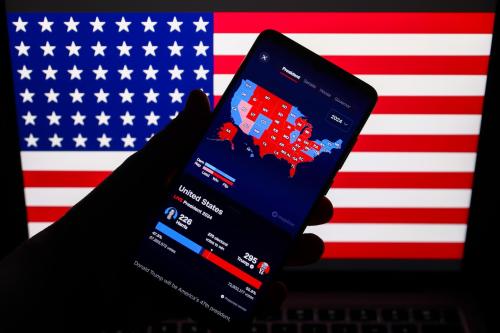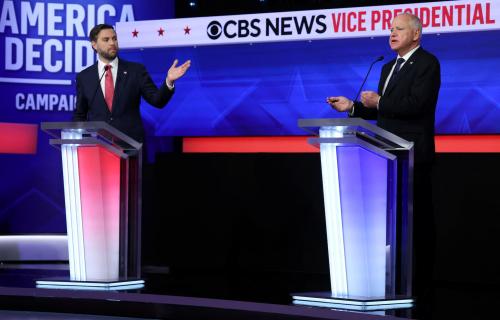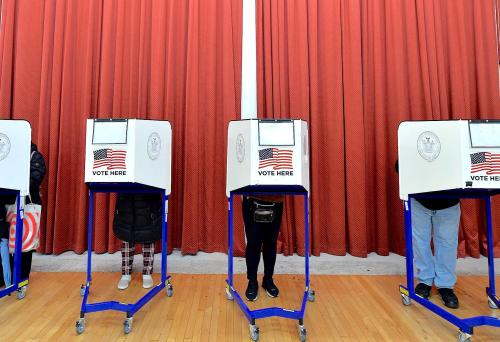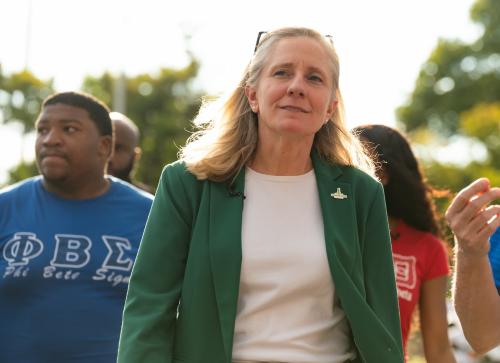Although Kamala Harris fully controlled her choice for her running mate, she could not control the context in which she made it. Like it or not, the two finalists—Minnesota’s Tim Walz and Pennsylvania’s Josh Shapiro—had come to be seen as representatives of the Democratic Party’s progressive and center-left factions, respectively.
Walz also came to be seen as a safer choice—governor of a reliably Democratic state who started out as a pro-gun rights member of the NRA (National Rifle Association) but shifted left during his political career and led his state to enact an unimpeachably progressive legislative agenda. Senator Bernie Sanders (I-Vt.) promoted and applauded his selection, as did many other progressive leaders. It was reasonable for Vice President Harris to calculate that her choice would stoke enthusiasm within Sanders’ wing of the party and that other Democrats would accept it without much public grumbling.
By contrast, Shapiro came to be seen as controversial, in part because of his pro-Israel criticism of Hamas’ U.S. supporters and openness to educational vouchers, and also because of vociferous objections from John Fetterman, Pennsylvania’s unpredictable junior senator and long-time Shapiro antagonist. Some of Shapiro’s backers saw the attacks against him as borderline antisemitic, and there could be repercussions within the normally pro-Democratic Jewish electorate.
Harris reportedly places a high value on loyalty and may have seen Walz as less likely to be torn between service to her administration and personal ambition. And chemistry matters: She may well have seen Walz’s avuncular Midwestern steadiness as a balance to her more youthful West Coast exuberance. (Most people will be surprised to learn that Walz is less than 6 months older than Harris.) They reportedly “clicked” quickly during Walz’s interview.
In two respects, however, Harris’ choice could have negative consequences. First: During her years in the Senate and her failed quest for the Democratic nomination in 2020, she adopted a number of progressive positions—endorsing the Green New Deal, opposing fracking, supporting Medicare for All (including for undocumented immigrants), and comparing ICE to the KKK—that she is now repudiating. Choosing a running mate seen as strongly progressive could make it more difficult to separate herself credibly from her past record.
Second: In the context of the Electoral College, Harris’ choice could backfire. While Walz’s Minnesota is safely Democratic, Shapiro presides over the most important swing state in the 2024 election. Although many pundits see Walz as especially appealing to rural and working-class voters, the evidence suggests otherwise. Compared to Biden’s 2020 performance in Minnesota, Walz received the same share of the vote overall (52%), and he did no better than Biden among rural and small-town voters, working-class voters, and Republican identifiers while running four points behind Biden among Independents.
By contrast, Shapiro far exceeded Biden’s 2020 baseline statewide, racking up 57% of the vote compared to Biden’s 50%. And he outpaced Biden in virtually every electoral group, exceeding the president’s share by seven points among rural and small-town voters, seven points among non-college voters, nine points among Republicans and voters leaning Republican, and five points among Independents.
It’s hard to believe that Shapiro’s presence on the ticket wouldn’t have helped Harris in a state she must win. She will have to hope that Walz’s midwestern appeal will end up putting Pennsylvania as well as Michigan and Wisconsin in her column. But if she loses Pennsylvania by a hair, and with it her Electoral College majority, she will have cause to regret her decision.
The Brookings Institution is committed to quality, independence, and impact.
We are supported by a diverse array of funders. In line with our values and policies, each Brookings publication represents the sole views of its author(s).







Commentary
Why Walz—and not Shapiro—for vice president?
August 6, 2024